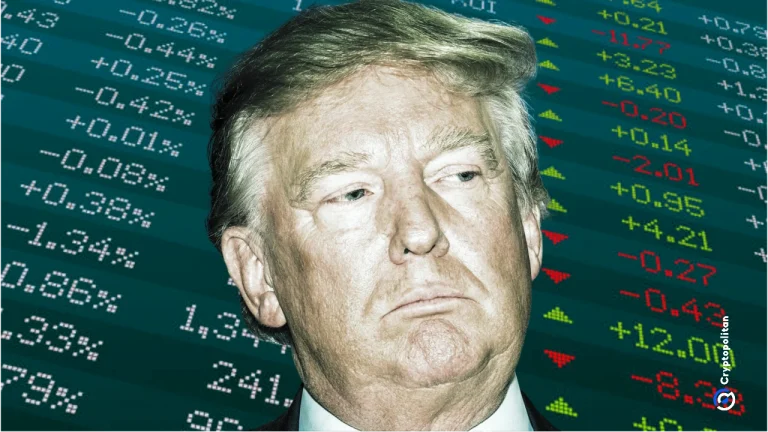Key Takeaways
- U.S. Congressman Ro Khanna is proposing legislation to ban President Trump, his family, and all members of Congress from engaging in cryptocurrency trading or ownership.
- The bill is a direct response to the recent pardon of Binance founder Changpeng Zhao (CZ) and is framed by Khanna as a measure against corruption and ethical breaches.
- Concerns are raised about potential conflicts of interest due to Trump’s family’s involvement in crypto ventures, notably World Liberty Financial’s stablecoin initiative supported by Binance.
- Khanna argues that allowing elected officials to profit from crypto ties poses national security risks and erodes public trust in the integrity of government.
U.S. Congressman Ro Khanna intends to introduce legislation that would prohibit President Donald Trump, his immediate family, and all members of Congress from participating in any cryptocurrency-related activities, including trading, owning, or launching digital asset ventures.
This proposed bill emerges in the wake of significant public disapproval following the recent pardon of Binance’s former CEO and founder, Changpeng Zhao (CZ). CZ had previously served a four-month sentence for violating anti-money laundering laws in the United States.
Khanna publicly stated that the pardon was indicative of corruption and pointed to substantial ethical lapses within the Trump administration, particularly concerning the President’s family’s alleged interests in cryptocurrency.
Khanna Condemns Trump’s Pardon of CZ as Corruption
Speaking in a recent interview, Congressman Ro Khanna announced his legislative initiative, which aims to extend existing restrictions on stock trading for public officials to encompass digital assets and tokenized projects. This would mean that elected officials, along with their spouses and dependent family members, would be barred from holding or developing cryptocurrency businesses while in public service.
“This is blatant corruption. You don’t need to know a lot about cryptocurrency to understand what went on here. A convicted billionaire who funneled money to terrorists and child abusers gets pardoned after financially backing the president’s son’s crypto company.”
–
Ro Khanna, U.S. Congressman
The controversy intensified on October 24th when former President Trump issued a full pardon to CZ, following a period of considerable political lobbying and internal deliberation.
Reports indicate that Binance allegedly engaged lobbyist Ches McDowell to influence the Trump administration’s perspective on Zhao’s conviction, with arguments suggesting the prosecution under the Biden administration was politically motivated. White House Press Secretary Karoline Leavitt defended the decision, characterizing it as an end to the Biden administration’s war on crypto.
Changpeng Zhao himself expressed gratitude for the pardon, acknowledging President Trump’s commitment to fairness, innovation, and justice. Zhao pledged to further establish the U.S. as a leading hub for crypto and Web3. The announcement of his release led to an immediate 8% surge in the BNB coin’s value on the day.
Trump’s Crypto Connections Spark Ethical Review
The President’s decision to pardon CZ has reignited scrutiny into his administration’s deep-seated ties with the cryptocurrency sector. Notably, his sons, Donald Trump Jr. and Eric Trump, are at the helm of World Liberty Financial (WLFI), a company that recently launched a stablecoin initiative. WLFI’s operations have reportedly received early liquidity and back-end support from Binance, raising significant questions about potential conflicts of interest.
Earlier in March, Timothy Massad, former Chairman of the Commodity Futures Trading Commission (CFTC), had already voiced concerns about the President’s increasing involvement in crypto projects, deeming it an unprecedented conflict of interest. Massad argued that ventures like WLFI and the Trump meme coin blurred the lines between public officeholders and private financial gains.
💡 Massad cautioned that such endeavors could potentially lead to investor fraud, especially as the administration formulates national cryptocurrency policies.
Congressman Khanna emphasized that the connection between Trump and CZ, culminating in the pardon, exemplifies a clear conflict of interest. He highlighted that foreign influence within the crypto market poses a direct threat to U.S. national security and stated that enabling elected officials to derive personal financial benefits from such relationships is unacceptable.
✅ Congressman Khanna’s proposed legislation aims to bridge these ethical gaps by establishing broad prohibitions on digital asset ownership and participation for all public officials.
Furthermore, the Trump administration has been noted for rolling back several enforcement measures that were implemented during the Biden administration. This includes dismantling enforcement initiatives previously launched by the Securities and Exchange Commission (SEC) and the Justice Department’s dedicated cryptocurrency unit.
⚡ Khanna’s bill seeks to restore public trust by addressing the perception that Washington’s stance on cryptocurrency is subject to political sale, as signaled by Zhao’s pardon.
Final Thoughts
Congressman Ro Khanna’s proposed bill aims to create a clear divide between public service and personal financial gain in the cryptocurrency space. The initiative highlights ongoing concerns about ethical conduct and potential conflicts of interest among high-ranking officials involved with digital assets.
By extending existing financial conduct rules to cryptocurrencies, Khanna’s proposal seeks to safeguard national security and bolster public confidence in the integrity of government decision-making processes regarding the burgeoning digital asset market.

